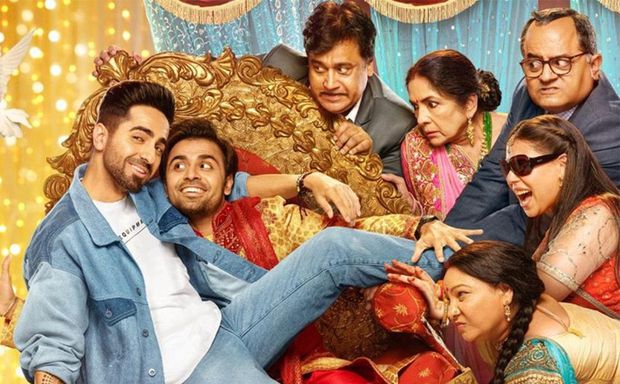
Shubh Mangal Zyada Saavdhan
[dropcap]‘S[/dropcap]hubh Mangal Zyada Saavdhan’ has all the Bollywood trimmings – the catchy songs, the hot romance, the dances, the big fat Indian wedding, the comedy, the drama which have made it a box-office hit.
Yet it has something more which will ensure it will become a milestone marker in Hindi film history.
It has heart and intelligence. The couple in the center of the romance is not a man and a woman but man and man – the inimitable Ayushman Khurrana is Kartik and the lovable Jitendra Kumar plays his lover Aman. Their love is very natural, very palpable to the audience and they look and act as if they are made for each other. But between them stand a homophobic society and their unbending families. Huge problems – but director Hitesh Kewalya handles these major issues with humor.
[dropcap]I[/dropcap]t helps that the two lead actors have great chemistry and you absolutely believe in their attraction to each other; it also helps that Aman has an eccentric family with the wonderful Neena Gupta and Gajraj Rao as his parents and Manvi Gagroo as Goggle, his equally zany cousin sister. The large extended family is a colorful bunch of individuals so their squabbles become something you are drawn into, laughing all the way.
‘Shubh Mangal Zyada Saavdhan’ entertains – and yet creates real gay characters with real concerns and hurts, not the ridiculous gay characters we’ve generally seen in Bollywood movies, the butt of jokes and innuendo. SMZS has heart in that it shows parents who may be stubborn and conservative, but want only the best for their children and do come around, trying to move with a fast-changing world.
Just like back home, even within the diasporic community, Indian gays and lesbians are often invisible. This film makes gay characters the leads, the stars of their own story. In New York the film played to packed houses and of course the Indian-American LGBTQ community turned up in full force, even organizing a special screening so that for the first time they could laugh and celebrate together – Bollywood had finally made this community visible and given them a place in the storytelling. If Bollywood accepted their love and gave it its gold stamp of approval – backed by superstar Aynshmann Khurrana – would not society, the world and even really stubborn parents come around?
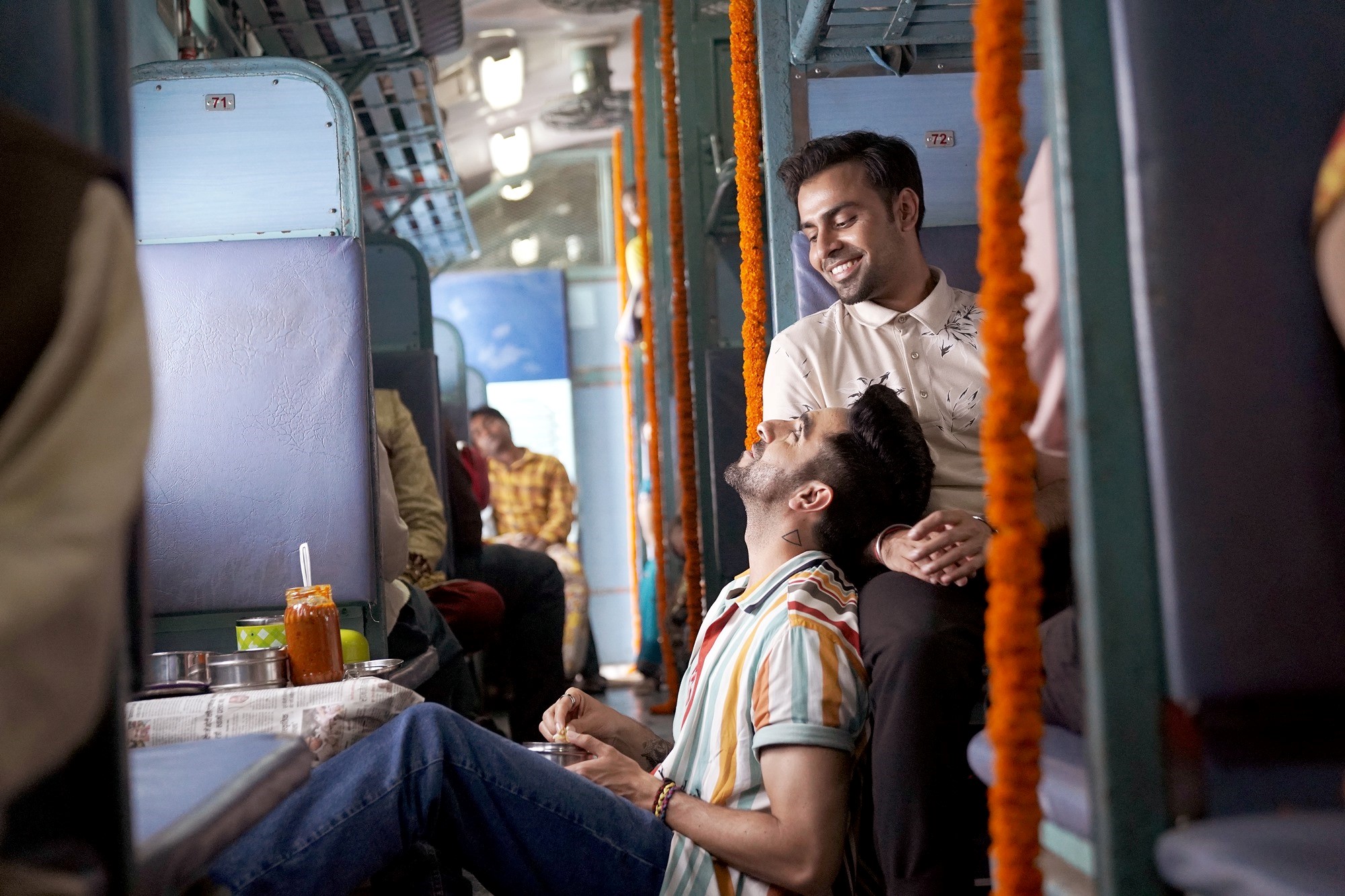
[dropcap]A[/dropcap]sked why the movie was so important to him and the gay community, LGBTQ Rights activist and public health researcher Vaibhav Jain said, “It’s bringing much needed visibility and acceptance for the LGBTQ+ community. When a prominent Bollywood actor and influencer like Ayushmann Khurrana takes a stance on a social issue like gay rights, society sees it from a very different lens. For too long, the portrayal of LGBTQ+ characters in Bollywood have been more comical and, in many cases, derogatory. So, it’s refreshing to see homosexuality portrayed as a central subject in a movie.”
Jain, who recently got married to Parag Mehta in a big family approved wedding in Texas, believes that Movies like SMZS can really help Indians understand their sexuality and address it. “I think of the many young LGBTQ+ folks growing up small towns across India, not knowing why they are attracted to the same sex or feeling different. This movie will hopefully inspire those young people to love themselves more. Representation matters.”
Asked about the reaction of Indian-American LGBTQ community, he said: “The reaction from the Queering Desi community was positive and celebratory. We are excited to see stories like ours featured on the big screen. Many of us felt that, after so many years of living in the shadows and being underrepresented, we are no longer invisible.”
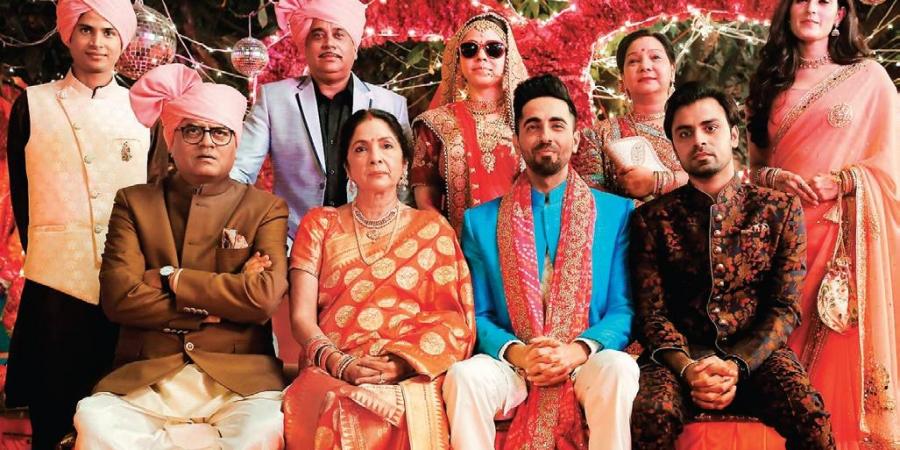
[dropcap]D[/dropcap]id he feel the movie did a good job? “I personally think that the movie did a very nice job of handling a sensitive social issue and made it easy to talk about. There were several times during the screening when my husband and I would give each other knowing looks because a situation on the screen matched our own experiences. It’s not a perfect film. But it’s an important start. And I hope it opens the door to more films that portray our lives – including those where our sexual orientation need not be central to the story line.”
Priya Arora is the founder and host of the Queering Desi podcast and she recently married her love Reema Tharani. Growing up in America she has memories of watching Bollywood films since childhood. “It’s how my immigrant parents tied us to our homeland, one that we only got to see once a year. It’s how I learned Hindi, and it’s made such a huge impact in my life. But Bollywood is also how I imagined a big wedding to a man who would come in on a white horse… only he never came. And he wasn’t a he! Even all these years after “coming out” (and I still come out all the time) seeing Bollywood portray characters from our communities feels like finally being seen… even though you knew you were worthy the whole time!”
She says the reaction to SMZS has been overwhelmingly positive. “From doing a few queer Bollywood screenings like “Ek Ladki Ko DekhaToh Aisa Laga” last year, we see time and time again that the demand to see these films with fellow community members and allies is high. To be in a theater of more than a hundred people all laughing, and cheering at the romantic parts is a transformative and powerful experience. This was no less, especially with funny dialogues, great music, and wonderful performances!”
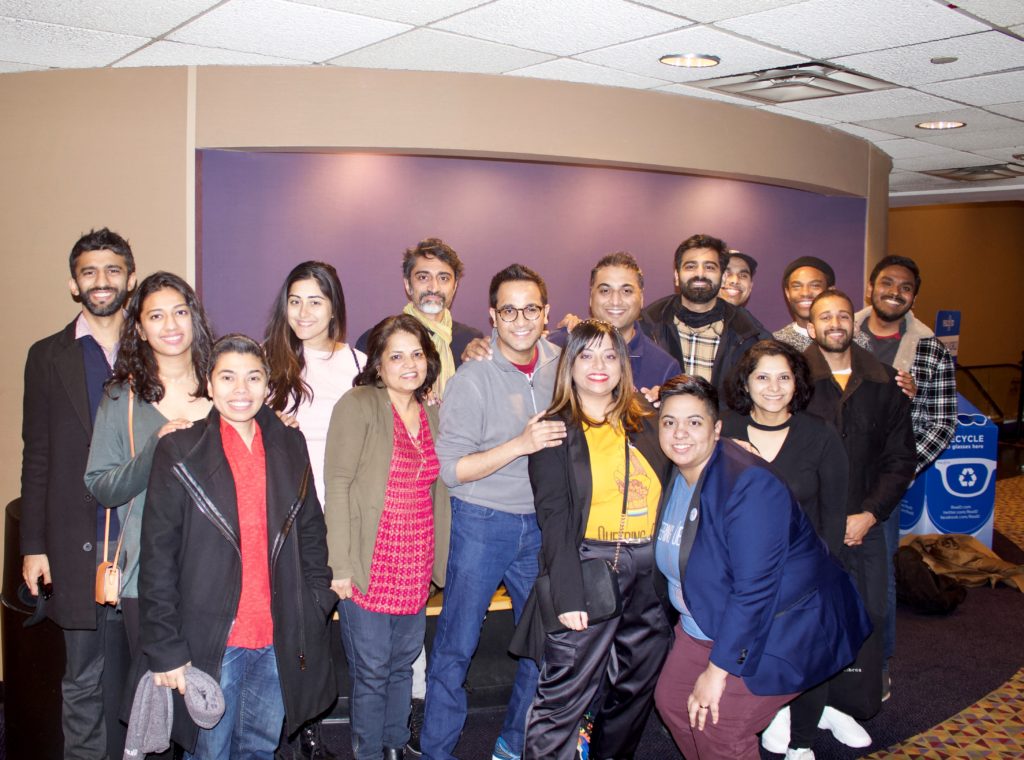
[dropcap]A[/dropcap]rora, who is a journalist, believes that Bollywood is still playing catch-up in a lot of ways. “Long gone are the days of feminine men being the butt of every homophobic joke. Bollywood now shifted as society has, and it plays its part- helping different walks of life and different generations of people understand this community. But for a lot of us in the community, we know that our stories stretch far and beyond our labels and who we love.”
She points out that independent films in the region have been doing this work for a long time, with films like Faraz Arif Ansari’s ‘Sisak’ or Sridhar Rangayan’s ‘Evening Shadows.’ And yet, the exposure of commercial cinema cannot be understated – so I do hope that Bollywood and its actors and filmmakers keep taking on films that depict a variety of genders and sexualities that are just part of a story- not THE story.”
She recalls that the packed hall of the LGBTQ community was very emotional on seeing this film. One of them, Somaya Gupta, said, “I cried six times during the movie despite it being a romcom simply because growing up I never thought I’d see Bollywood make movies about people in the LGBTQ community without ridiculing us.
For a long time I had truly accepted that my desi identity and my queer one would have to be separate. But today, not only watching this movie, but watching it with a room full of fellow queer desi people and hearing everyone cheer when the two men in the film kissed had my heart so full. Truly a day I wish I could go back and tell my younger self about.”
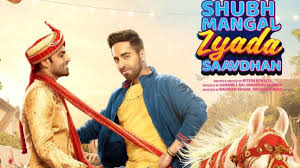
[dropcap]K[/dropcap]arim Tharani, who is an undergraduate student of musical theater at Hunter College, said: “I feel like any kind of public affection between men gets many “eww” faces and just seeing a kiss scene in the movie brings that to some kind of normalcy. I remember when ‘Ek Lardi Ko Dekha ‘was in theaters, this time last year, many desi queers used that movie as an aid to come out. I would not be shocked if people used this movie the same way.”
He gave a mini review which came from the heart – “This movie is a brick that has been put in the foundation to increase equality for people who like the same gender. The people who were in the screening were reminded of the pain that they went through when they came out to their loved ones. Many were happy to get some representation.”
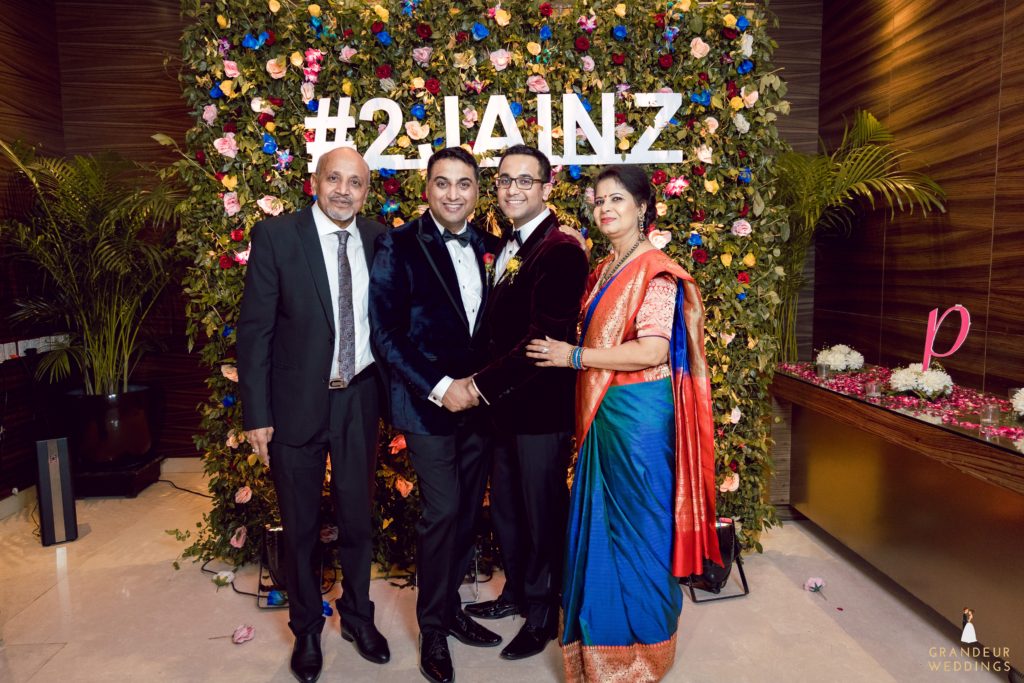
[dropcap]W[/dropcap]hile ‘Shubh Mangal Zyada Saavdhan’ has done a great job of entertaining the mainstream – and hopefully also educated them – I wondered what the families of the LGBTQ children thought of it. Of course many parents are still struggling with homophobia and norms of Indian culture and society, one pair of parents showed how India and orthodox ideas are changing.
As Renu and Rajesh Jain, parents of Vaibhav Jain, said: “Listening to some of Neena’s dialogues reminded us of the day when Vaibhav told us that he was gay… This movie beautifully and honestly depicts what goes on in the hearts and minds of parents of LGBT kids, especially when they come out. This is exactly how we felt initially. Today, we are very happy for Vaibhav and Parag, and we wish the same happiness for every gay, lesbian and transgender child and their families. We hope that this movie will become a stepping stone to that happiness.”
(This article was published in my weekly column ‘India in America’ on CNBCTV18.com)
Related Articles:
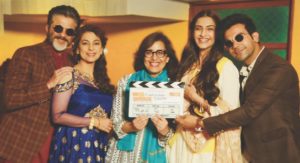
Shelly Chopra Dhar: Empowering People to be their True Selves
Love is Love is Love -Anu Hazra & Neeral Sheth
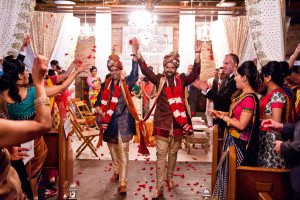
#Gaypride
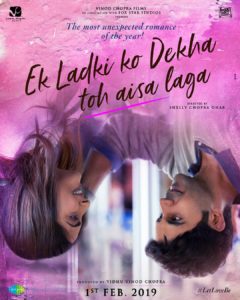

2 Comments
Devika, that’s the best part of the movie – and if you read the story you’ll find the gay community in NYC loved the way their story was told.
Devika Kamboh via LinkedIn
I thoroughly enjoyed watching this and appreciate the delicate way the director has brought attention to issues faced by gay couples using humor and pathos.